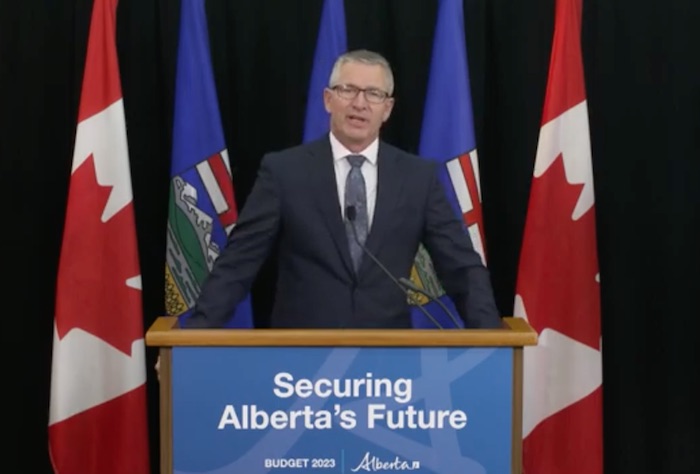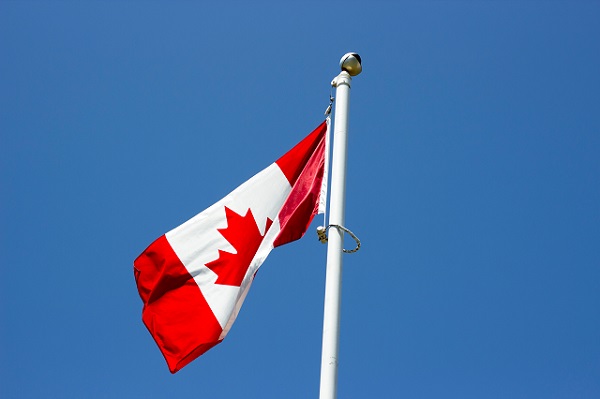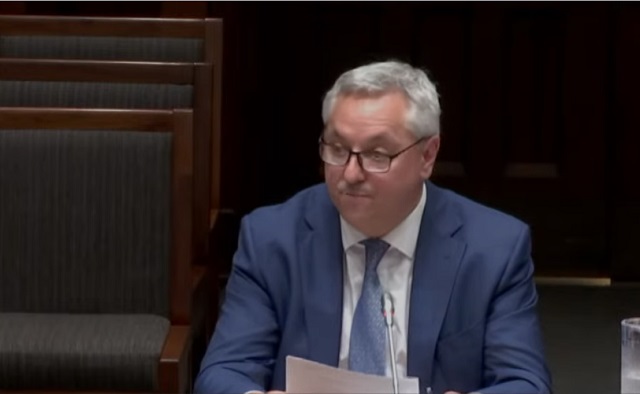Alberta
Premier Danielle Smith’s first budget adds health and education spending and forecasts a $2.4 billion surplus

Budget 2023 forecasts a surplus of $2.4 billion in 2023-24 and reflects the government decisions to invest in Alberta’s future and provide security for Alberta families and communities.
“Fiscal responsibility matters. It’s been key to achieving our strong fiscal standing and will be essential for sustainable program delivery in the future. In Budget 2023, we continue our commitment to paying down debt all while continuing to position our economy for growth and invest in the top priorities of Albertans.”
Growing jobs and the economy
Budget 2023 advances the province’s already successful Alberta at Work initiative, investing a further $176 million in 2025-26 to help Albertans build their skills and find jobs, and assisting employers in their search for workers in existing and emerging sectors.
A $111-million increase over three years will add seats to expand enrolment in areas with the highest student demand, including non-trade construction, energy, technology and business. Alberta’s government is committed to removing barriers in order to attract highliy skilled professionals and job-creating entrepreneurs to Alberta.
Investments in aviation and aerospace, agri-food manufacturing and $24.5 million this fiscal year to the Alberta Technology and Innovation Strategy will enhance emerging and innovative technologies, drive economic diversification and attract even more venture capital investments to build on successive record-breaking years. A $54-million per year increase in funding for the Alberta Petrochemicals Incentive Program starting in 2025-26 will support Air Products’ clean hydrogen facility – and continue to make Alberta a global leader in petrochemical production, bring long-term investments and create thousands of construction jobs.
Transforming health care to meet Albertans’ needs
Alberta’s government is setting a new record for spending in health care this year by committing an additional $965 million in operating expense in 2023-24 for the Ministry of Health to continue to build a stronger health-care system for Albertans. This funding will ensure the government can take the urgent action needed to improve ambulance response times, decrease emergency room wait times, reduce wait times for surgeries and attract more front-line health workers to deliver the care patients expect and deserve.
Budget 2023 includes $158 million this year to attract, recruit and train more doctors and nurses to work across the province, with a focus on family physicians for rural areas. Alberta’s primary health-care system is being strengthened and modernized with a record $2 billion over three years. Another $196 million over three years will strengthen emergency medical services and $3.1 billion over three years will modernize and expand health facilities across Alberta, including the Red Deer Regional Hospital and expanding capacity for operating rooms in 15 communities to complete more of the surgeries Albertans are waiting for. An additional $529 million in capital maintenance and renewal funding will be used to keep facilities operational and a further $732 million in self-financed investment will add to health infrastructure.
Supporting Albertans, students and families
With $2.3 billion in affordability measures in 2023-24, $1.5 billion in 2024-25 and another $1.8 billion in 2025-26, Alberta’s government is keeping more money in the pockets of Albertans and continues to provide a helping hand to those in need. New relief measures will save post-secondary students about $18 million each year with lower interest rates for student loans. Adoptive families will have access to more subsidies and tax breaks to make adoption more feasible. Workers in the social services sector will see their wages increased by 10 per cent, so they can continue to provide compassionate services to people with complex needs, those experiencing homelessness or family violence. Albertans will also receive a larger tax credit when they donate to their favourite charities to lend a helping hand.
An increase of $1.8 billion for education will help Alberta’s young people succeed and thrive in smaller classes. This increase will support the hiring of up to 3,000 education staff, including teachers, educational assistants, bus drivers and school support staff to give students the focused time and attention they need to succeed in their studies.
The government is also investing $59.3 million in 2023-24 to create thousands more licensed child-care spaces as part of opening a total of 68,700 new spaces by the end of March 2023, increasing access and choice so parents can go to school, work and participate in the economy. Affordability grants to child-care operators and subsidies for parents will further lower the cost of child care, with the Alberta federal-provincial child-care agreement already reducing fees by an average of 50 per cent in 2022 for young children.
Keeping Albertans and communities safe
All Albertans, families and children have the right to safety and security in their homes, at school, at work and in their communities, no matter where they live.
Budget 2023 keeps communities safe by increasing collaboration between first responders and community partners and increasing access for vulnerable populations to recovery-oriented mental health and addiction supports and services.
- $12.5 million in 2023-24 will support the expansion of therapeutic living units within provincial correctional facilities to help inmates access recovery-oriented treatment and recovery programs. This is a joint investment between Mental Health and Addiction and Public Safety and Emergency Services.
- $65 million over the next three years will strengthen First Nations policing to address the unique needs of their communities and members. This will secure new policing positions and the creation of another First Nations police service in addition to the Lakeshore Regional Police Service, the Blood Tribe Police Service and Tsuut’ina Nation Police Service.
- $20 million over three years is committed to combat human trafficking and ensure necessary resources are provided to survivors and victims.
The province will review options for delivering policing services with the objective of improving the safety and security of Albertans and their property.
Committing to responsible fiscal management
Budget 2023 secures Alberta’s future by staying true to responsible fiscal management and spending hard-earned tax dollars wisely to support Albertans today and tomorrow.
A new fiscal framework would require all future Alberta governments to balance their annual budgets, with certain exceptions, and use any surpluses to first pay down debt and save for the future before investing in one-time initiatives.
Taxpayer-supported debt is being reduced by $14.8 billion between 2021-22 and 2023-24, and the Alberta Heritage Savings Trust Fund is growing by $5.7 billion between 2021-22 and 2025-26. This will bring taxpayer-supported debt to $78.3 billion at the end of 2023-24, and saves Albertans estimated $260 million in this fiscal year and $551 million in 2023-24.
Mandating balanced budgets and tying operating expense increases to population growth and inflation would help control spending to prevent what could be temporarily high resource revenue being used to increase spending in an unsustainable way. Spending decisions instead would be focused on not only meeting the needs and priorities of Albertans but also on continuing to drive change, innovation and improvement of vital services and programs.
Revenue
- In 2023-24, total revenue is estimated to be $70.7 billion, which is $5.4 billion lower than the forecast for 2022-23. Commodity prices are expected to soften due to fears of a looming global recession, while investment income is expected to recover well after dropping in 2022-23.
- Revenue is expected to remain above $70 billion in following years. The revenue forecast for 2024-25 is $71.7 billion and for 2025-26 is $72.6 billion.
- In 2023-24, corporate income tax revenue is estimated at $5.9 billion, down 7.8 per cent from 2022-23, largely due to declining commodity prices.
- Non-renewable resource revenue is estimated to be $18.4 billion in 2023-24, down from the highest-ever resource revenue of $27.5 billion forecast in 2022-23.
Expense
- Total expense in 2023-24 is $68.3 billion, which is $2.6 billion more than the forecast for 2022-23.
- Total expense is expected to be $69.7 billion in 2024-25 and $71.2 billion in 2025-26.
Surplus
- A surplus of $2.4 billion is forecast for 2023-24 compared with $10.4 billion in 2022-23.
- Surpluses of $2 billion and $1.4 billion are forecast for 2024-25 and 2025-26, respectively.
Economic outlook
- In 2022, real gross domestic product (GDP) rose by an estimated 4.8 per cent, which is lower than the budget forecast of 5.4 per cent. The softer growth reflects the impact of higher interest rates and prices on consumer spending and residential investment. Even so, real GDP fully recovered from the COVID-19 downturn and surpassed the 2014 peak in 2022.
- In 2023, real GDP is expected to grow by 2.8 per cent, up slightly from the 2.7 per cent growth forecast at mid-year.
Energy and economic assumptions, 2023-24
- West Texas Intermediate oil (USD/bbl) $79.00
- Western Canadian Select @ Hardisty (CND/bbl) $78.00
- Light-heavy differential (USD/bbl) $19.50
- Natural gas (CND/GJ) $4.10
- Convention crude production (000s barrels/day) 497
- Raw bitumen production (000s barrels/day) 3,345
- Canadian dollar exchange rate (USD/CDN) $76.20
- Interest rate (10-year Canada bonds, per cent) 3.60
Budget 2023 secures Alberta’s bright future by transforming the health-care system to meet people’s needs, supporting Albertans with the high cost of living, keeping our communities safe and driving the economy with more jobs, quality education and continued diversification.
Alberta
Former senior financial advisor charged with embezzling millions from Red Deer area residents

News release from Alberta RCMP
Former senior financial advisor charged for misappropriating nearly $5 million from clients
On April 4, 2024, the RCMP’s Provincial Financial Crime Team charged a Calgary resident for fraud-related offences after embezzling millions of dollars from his clients while serving as a senior financial advisor.
Following a thorough investigation, the accused is alleged to have fraudulently withdrawn funds from client accounts and deposited them into bank accounts he personally controlled. A total of sixteen victims were identified in the Red Deer area and suffered a combined loss of nearly $5 million.
Marc St. Pierre, 52, a resident of Calgary, was arrested and charged with:
- Fraud over $5,000 contrary to section 380(1)(a) of the Criminal Code; and,
- Theft over $5,000 contrary to section 344(a) of the Criminal Code.
St. Pierre is scheduled to appear in Red Deer Provincial Court on May 14, 2024.
“The ability for financial advisors to leverage their position to conduct frauds and investment scams represents a significant risk to the integrity of Alberta’s financial institutions. The investigation serves as an important reminder for all banking clients to regularly check their accounts for any suspicious activity and to report it to their bank’s fraud prevention team.”
- Sgt. John Lamming, Provincial Financial Crime Team
The Provincial Financial Crime Team is a specialized unit that conducts investigations relating to multi-jurisdictional serious fraud, investments scams and corruption.
Alberta
Political parties will be part of municipal elections in Edmonton and Calgary pilot projects

Strengthening Alberta’s local elections
Alberta’s government is introducing legislation to ensure Albertans can rely on transparent, free and fair elections, and municipally-elected officials have clearer accountability measures.
In a democratic society, Albertans expect their local elections to be free and fair, and their elected officials to be held to account by clear rules that govern their local councils. The Municipal Affairs Statutes Amendment Act proposes amendments to the Local Authorities Election Act (LAEA) and the Municipal Government Act (MGA) to add greater transparency to local election processes and ensure local councils and elected officials continue to remain accountable to the citizens who elected them.
“Our government is committed to strengthening Albertans’ trust in their local governments and the democratic process that elects local leaders. The changes we are making increase transparency for Alberta voters and provide surety their votes will be counted accurately. We know how important local democracy is to Albertans, and we will work with local authorities to protect and enhance the integrity of local elections.”
Local Authorities Election Act
Albertans expect free and fair elections and that’s why it’s important we strengthen the rules that govern local elections. To strengthen public trust in local elections, Alberta’s government will eliminate the use of electronic tabulators and other automated voting machines. All Albertans should be able to trust the methods and results of local elections; requiring all ballots to be counted by hand, clarifying rules and streamlining processes for scrutineers will provide voters greater assurance in the integrity of the results.
All eligible Albertans should be able to vote in local elections without impediment. Alberta’s government will limit the barriers for eligible voters to cast a ballot by expanding the use of special ballots. Currently, special ballots can only be requested for very specific reasons, including physical disability, absence from the municipality, or for municipal election workers. By expanding the use of special ballots, the government is encouraging more voter participation.
Amendments in the Municipal Affairs Statutes Amendment Act would increase transparency in local elections by enabling political parties at the local level. Political parties would be enabled in a pilot project for Edmonton and Calgary. The act will not require candidates to join a political party in order to run for a local or municipal office, but will create the opportunity to do so.
In addition, proposed changes to the Local Authorities Election Act would allow municipalities the option to require criminal record checks for local candidates, thus increasing transparency and trust in candidates who may go on to become elected officials.
Municipal Government Act
The role of an elected official is one with tremendous responsibility and expectations. Changes proposed to the Municipal Government Act (MGA) will strengthen the accountability of locally elected officials and councils. These include requiring mandatory orientation training for councillors, allowing elected officials to recuse themselves for real or perceived conflicts of interest without third-party review and requiring a councillor’s seat to become vacant upon disqualification.
If passed, the Municipal Affairs Statutes Amendment Act will also unlock new tools to build affordable and attainable housing across Alberta. Proposed amendments under the MGA would also create more options for municipalities to accelerate housing developments in their communities. Options include:
- Exempting non-profit, subsidized affordable housing from both municipal and education property taxes;
- Requiring municipalities to offer digital participation for public hearings about planning and development, and restricting municipalities from holding extra public hearings that are not already required by legislation; and
- Enabling municipalities to offer multi-year residential property tax exemptions.
Municipal Affairs will engage municipalities and other partners over the coming months to hear perspectives and gather feedback to help develop regulations.
Quick facts
- The LAEA establishes the framework for the conduct of elections in Alberta municipalities, school divisions, irrigation districts and Metis Settlements.
- The MGA establishes the rules governing the conduct of local elected officials once on council, as well as the overall administration and operation of municipal authorities in Alberta, including any policy those authorities may wish to implement.
Related information
-

 Business2 days ago
Business2 days agoDon’t be fooled by high-speed rail
-

 Alberta2 days ago
Alberta2 days agoActivity-Based Hospital Funding in Alberta: Insights from Quebec and Australia
-

 Business2 days ago
Business2 days agoUN plastics plans are unscientific and unrealistic
-

 Business2 days ago
Business2 days agoTaxpayers criticize Trudeau and Ford for Honda deal
-

 Fraser Institute2 days ago
Fraser Institute2 days agoCanadians should decide what to do with their money—not politicians and bureaucrats
-

 Addictions2 days ago
Addictions2 days agoBritish Columbia should allow addicts to possess even more drugs, federal report suggests
-

 Censorship Industrial Complex1 day ago
Censorship Industrial Complex1 day agoJordan Peterson, Canadian lawyer warn of ‘totalitarian’ impact of Trudeau’s ‘Online Harms’ bill
-

 Alberta2 days ago
Alberta2 days agoAlberta rejects unconstitutional cap on plastic production








